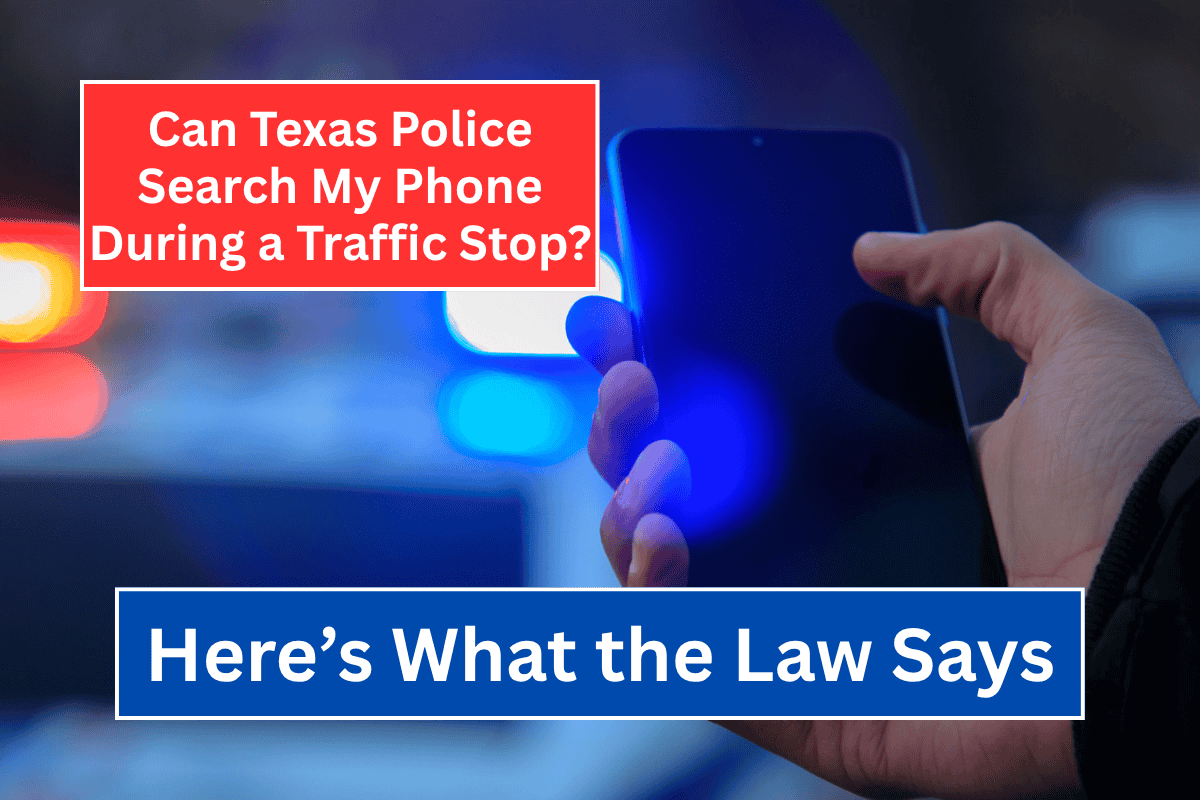In today’s digital world, our phones hold a lot of personal information—texts, photos, emails, and more. So, it’s natural to wonder: if you’re stopped by the police in Texas, can they search your phone? Let’s break it down in simple terms so you can clearly understand your rights and avoid common mistakes.
Your Rights Under Texas Law
According to Article I, Section 9 of the Texas Constitution, you are protected from unreasonable searches and seizures. This means police cannot go through your belongings, including your phone, without a valid reason.
Your phone is legally considered one of your possessions, and just like police need a warrant to enter your home, they usually need one to search your phone too.
Can Police Search Your Phone Without a Warrant?
The General Rule: No, They Can’t
In most cases, Texas police need a search warrant to go through your phone—even if you’re under arrest. Without a warrant, you have the right to refuse a phone search.
Even if an officer demands access, you’re not legally required to unlock or hand over your phone unless a judge has issued a warrant. If they do search your phone without one, that action may be illegal.
You Can Say No
It’s common for police officers to pressure people into allowing a search. They might even say things like, “You have to hand over your phone.” But unless they have a valid warrant or a strong legal reason, you can politely say no.
If you ever find yourself in this situation, it’s best to stay calm, ask if they have a warrant, and if not, refuse consent.
When Can Police Search Without a Warrant?
There are some exceptions where a phone can be searched without a warrant. These are known as “exigent circumstances.” Here’s when this might happen:
If You Give Permission
If you say yes, you’re giving police the legal right to search your phone—even without a warrant. That’s why legal experts usually recommend never giving permission for a search.
In an Emergency
Police may search your phone without a warrant if they believe:
Evidence is about to be deleted
Someone’s life is in danger
They’re chasing a suspect and time is critical
Even in these situations, officers must prove that they had a good reason for skipping the warrant process. If they can’t, any evidence they collect may not be allowed in court.
What Can Police Access If They Get a Warrant?
If a judge grants a search warrant, police may use special tools and software to get information from your phone, including:
Text messages
Call logs
Emails
Voicemails
Photos and videos
Deleted data (in some cases)
They can even request access to your cloud backups, like iCloud or Google Drive, and get your social media data from companies like Facebook or Instagram—with a court order.
So even if they don’t touch your phone, they might still access your private information through other channels.
What Happens If Police Illegally Search Your Phone?
If your phone is searched without a warrant and without your permission, the search may be considered illegal. Here’s what that could mean for your case:
The court may throw out any evidence found during the search
Your charges might be dropped
Your case could be dismissed or weakened
You may get a better plea deal
If you believe your rights were violated, talk to an attorney immediately. A lawyer can review the details and help protect your rights.
You’re Protected by Federal and State Law
Your rights are not just protected by Texas law. The Electronic Communications Privacy Act of 1986 also offers protection at the federal level. This means that whether it’s a local police officer or a federal agent, they must follow the law before accessing your personal digital data.
Police in Texas cannot search your phone during a traffic stop unless they have a warrant, your permission, or an emergency reason. Your phone is protected just like your home or personal documents. If officers break this rule, the evidence may not hold up in court.
That’s why it’s important to know your rights, stay calm, and refuse any search request unless a warrant is shown. And if you think your rights were violated, get in touch with a lawyer right away.












